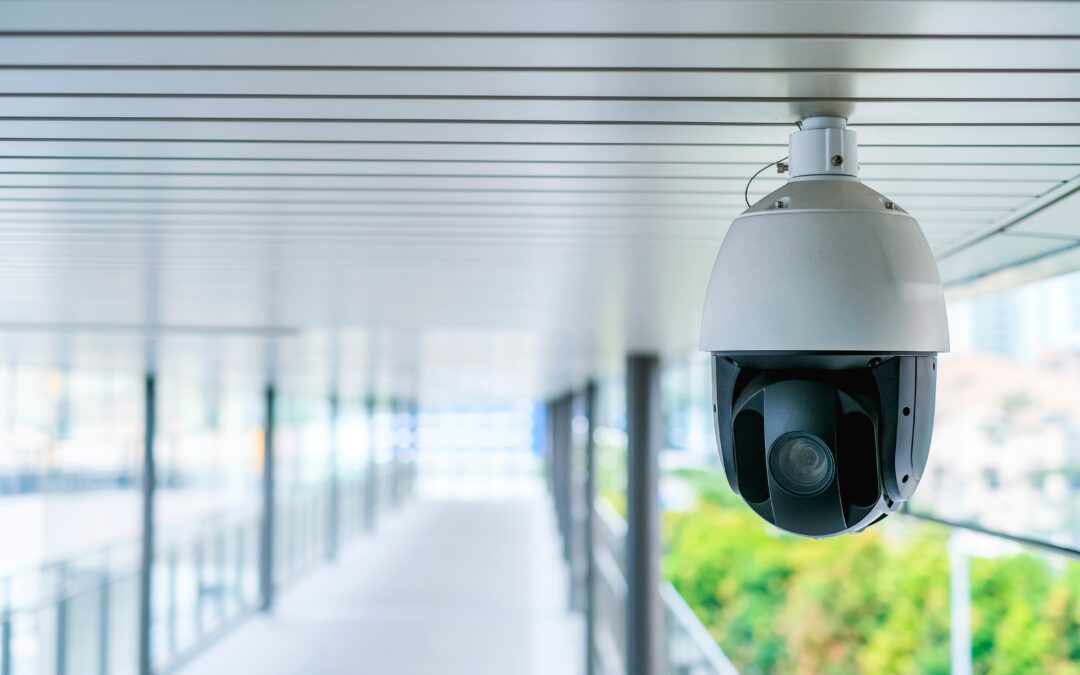Choosing the right camera surveillance system can be difficult, but it doesn’t have to be. When it comes to security systems, there are two main types of cameras: CCTV and IP. CCTV cameras are older and have been around for decades, but IP cameras are quickly taking over the world of surveillance. CCTV and IP camera surveillance are both adequate systems that provide your business with the security it needs. One is not truly better than the other, but you should consider the differences based on the type of building your business operates in and your type of commercial business. Read on to find out which camera is right for your business!
Since 1994, Prestige Alarm has been helping commercial business owners in the Birmingham-Hoover metropolitan area choose, install, and maintain quality security systems. Contact us today for a consultation!
CCTV Cameras
CCTV or Closed-Circuit Television systems transmit a feed from the cameras to one location. CCTV cameras are placed strategically throughout a building, but there is a physical limit to the number of cameras that can be added to a network. The feed is typically monitored by a human at an internal system of monitors. If they aren’t monitored by humans, CCTV can be hooked up to a DVR (digital video recorder) for remote monitoring. CCTV cameras usually have a lower resolution of 960 x 480, but some offer HD resolution. CCTV offers a high level of security because they’re reliable at detecting crimes in progress and are ideal for keeping an eye on things from afar.
IP Cameras
IP or Internet Protocol cameras transmit video footage through a computer network. A larger number of IP cameras can be placed throughout the building than CCTV cameras. Video is stored digitally via NVR (network video recorder). IP cameras are unique because they can be installed quickly, and more cameras can easily be added to the network. In addition, IP cameras have a higher resolution at 1080p HD.
Comparing CCTV & IP Cameras
Now you know some of the differences between CCTV and IP cameras. IP cameras are by far the more modern choice regarding resolution, the number of cameras that can be networked, and remote access. CCTV gives the advantage of monitoring larger spaces, and some can be upgraded to have IP-like features. Before having CCTV or IP cameras installed, read up on your state’s laws for surveillance in commercial buildings, as this may factor into your decision.
How Much Do They Cost?
IP cameras are more expensive than CCTV, but they can save you money in the long run. IP cameras have a higher upfront cost than their analog counterparts, but they’re generally cheaper over time because they don’t require any additional equipment or maintenance costs. CCTV has a lower upfront cost, but ongoing expenses are higher once you factor in power consumption and data storage costs. You should also consider that CCTV has a more complex setup and will require a technician to install it. IP cameras are generally less complex and can be set up without expert guidance.
Which Is Right for Your Business?
One system may be more efficient than another for certain commercial business buildings. A CCTV system will be right for you if your business has a high volume of people coming and going or if you need to monitor specific areas of your building. CCTV is commonly used in buildings such as government offices or businesses like retail stores, banks, and educational institutions. An IP camera is better if your business is less crowded and you want to monitor a specific area more closely. CCTV and IP cameras can also be used in conjunction in the same building! The key thing here is knowing what’s important to your business before making a final decision about which type of camera surveillance works best in its environment.
If you need an expert diagnosis on what kind of surveillance is right for your commercial business, reach out to Prestige Alarm today!

